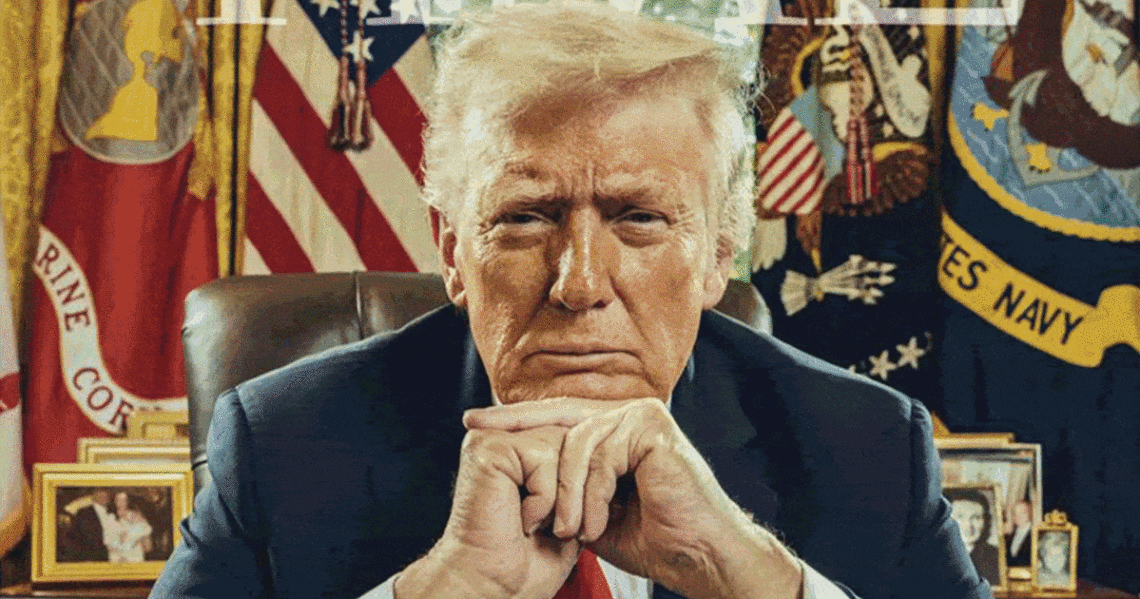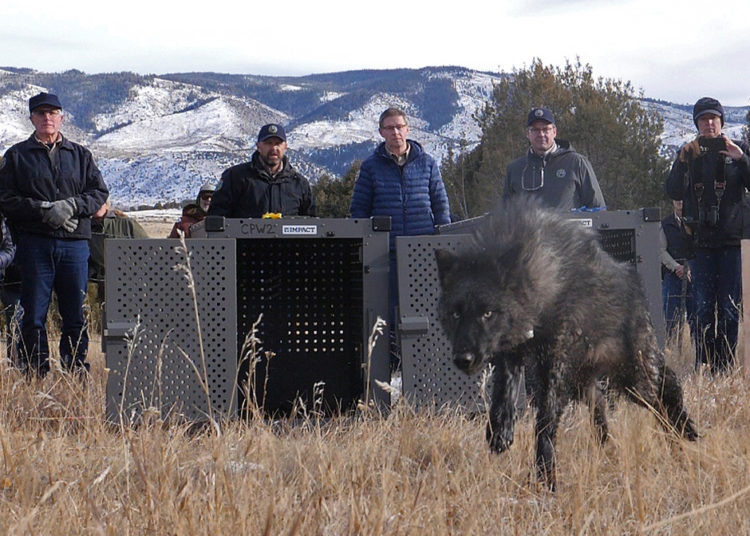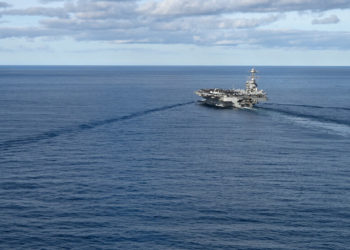President Donald Trump’s latest Time magazine cover owes its visual language to one of the most chilling portraits of the 20th century, the Daily Beast has learned.
The Time image—released online ahead of next week’s print issue—depicts the 79-year-old president behind the Resolute Desk. He is leaning forward into a power pose that obscures his often bruised right hand and his loose neck skin. Above the image, which was shot by Washington-based photographer Steven Voss, the headline declares, “TRUMP’S WORLD.”
The cover was unveiled just days after Trump himself lashed out at a Time cover picture of him, which showed an unflattering perspective on his 79-year-old neck. He has yet to give his take on his new one, but his chief communications officer is clearly enamored by it. “TRUMP’S WORLD,” Steven Cheung wrote on X, sharing the image.
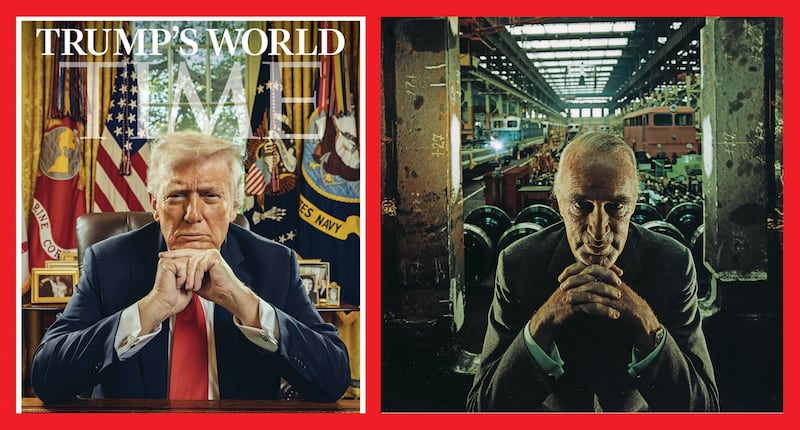
It comes as Time’s billionaire owner, Salesforce CEO Marc Benioff, outed himself as a Trump super-fan, declaring that he “fully supports” the president’s plot to send National Guard troops to San Francisco. “We don’t have enough cops, so if they can be cops, I’m all for it,” he said.
The Daily Beast has learned that the composition on the new Time cover is inspired by Arnold Newman’s 1963 photograph of Alfred Krupp, the German industrialist and convicted Nazi war criminal. That portrait, published by Newsweek, has long been considered among the most psychologically charged images ever produced for a weekly news magazine.
Voss appeared to confirm the reference by liking comments on Instagram where followers had asked him if the two images were linked. “Are you referencing Arnold Newman’s portrait of Krupp here?” one fellow photographer asked. Once Voss had liked the comment, Shayan Asgharnia replied again. “F—–g brilliant,” he said.
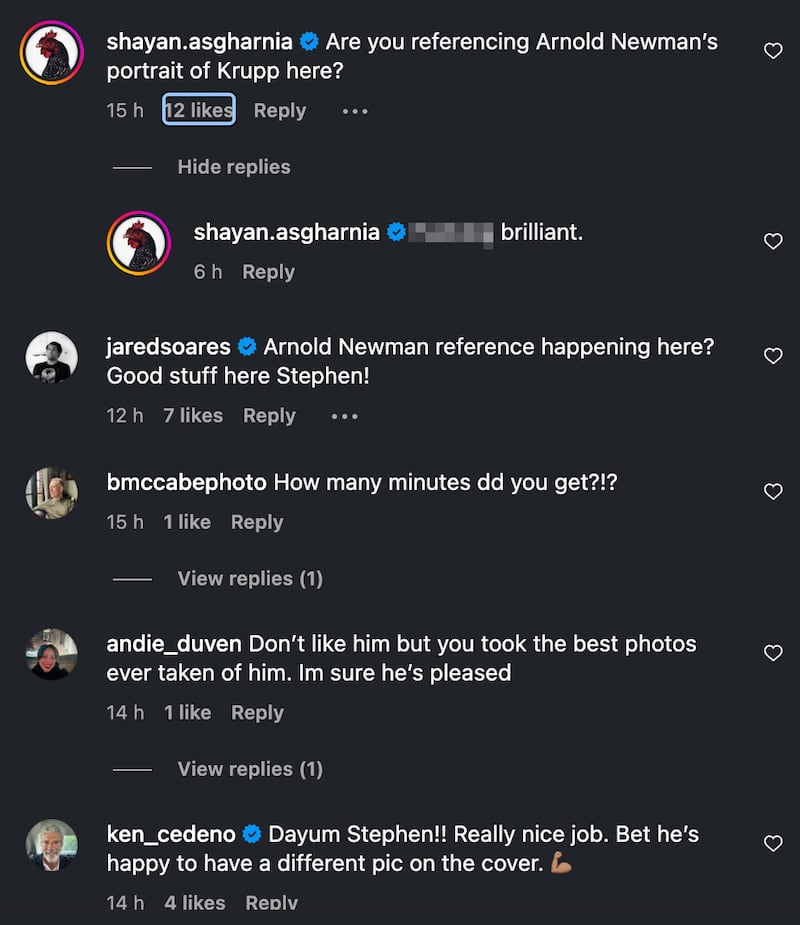
Newman, a Jewish photographer born in Manhattan in 1918, had originally resisted the assignment to photograph a Nazi war criminal on ethical grounds. “When the editors asked me to photograph him, I refused,” he later told American Photo magazine. “I said, ‘I think of him as the devil.’ They said, ‘Fine—that’s what we think.’ So I was stuck with the job.”
Krupp, the heir to Germany’s most notorious arms-manufacturing dynasty, oversaw factories that used more than 100,000 enslaved laborers during World War II, many of whom were brought in on trains from Eastern Europe. Among the laborers were also prisoners of war, concentration camp inmates and children.
His plants built tanks, artillery, and the massive “Big Bertha” howitzer that became synonymous with the Nazi war machine. He was convicted of war crimes by an American military tribunal at Nuremberg in 1948. He was sentenced to twelve years in prison, but was released after serving less than three years when his sentence was commuted by the U.S. High Commissioner for Germany.
When Newman finally agreed to photograph Krupp, he did so on his own terms. He placed the industrialist on a raised platform amid a bleak industrial backdrop, told him to clasp his hands and lean forward, and lit his face from below—a technique more often reserved for horror films than portraiture.
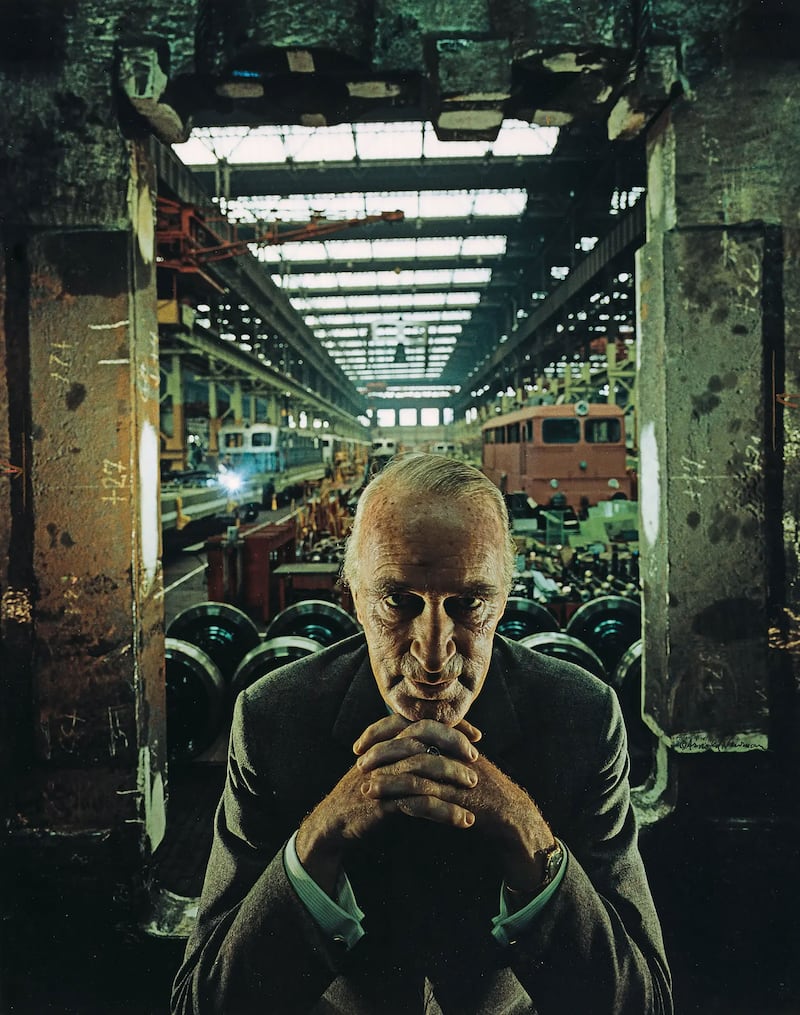
The Krupp photograph depicted a businessman whose wealth and industrial empire were inseparable from political brutality. Voss’s effort shows a president who, despite brokering a peace deal in the Middle East, faces constant criticism for the division he sows domestically.
The lighting, coupled with the industrial background in Newman’s image, creates a menacing result. Krupp’s expression seemed to curl into a smirk, his eyes gleaming in the half-light. “My hair stood on end,” Newman recalled. “He looked like the devil.”
Voss’s cover accompanies a feature on Trump’s role in brokering a Gaza peace deal. Yet the portrait’s aesthetic lineage—and the deliberate nod to one of history’s most infamous images—invites a reading that goes far beyond the headline.
The photograph situates Trump squarely within the symbolic framework Time has cultivated for over a century. Since its founding in 1923, the magazine’s cover has been the ultimate arbiter of power’s visual narrative—its red border as instantly recognizable as its subjects.
Time’s covers have defined how presidents are seen, always calculated to capture the prevailing mood of authority. For Trump, who has long obsessed over his own image, the relationship with Time has been fraught.
In August 2015, when Trump as the leader of the free world was still only just a possibility, he tussled with an American bald eagle during a shoot for the magazine. The moment the bird, named Uncle Sam, lashed out at the business magnate and ruffled his hair was captured on camera. “How’s my hair look?” the self-conscious presidential candidate asked.
After yet another Trump cover was published earlier this month, he lashed out on Truth Social. Online commentators dubbed the loose skin shown beneath his chin a “neck vagina.”
“Time Magazine wrote a relatively good story about me, but the picture may be the Worst of All Time,” Trump posted. He complained that the low angle was unflattering and made his hair look like it wasn’t fixed to his head.
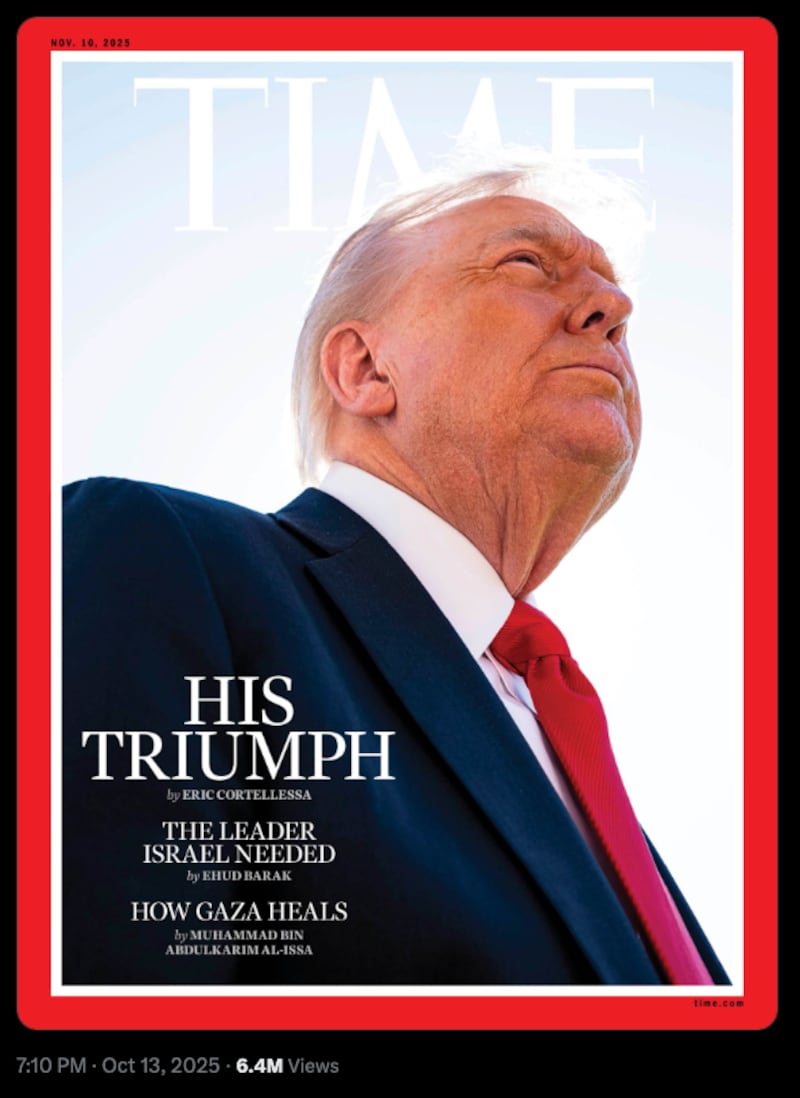
The new image, by contrast, is carefully composed, with the president leaning forward into the light—an assertive tableau meant to project power. But one that harks back to the chilling Newman shot.
Steven Voss, the photographer behind the shoot, is a veteran of Time’s political portraiture. His work is held in the permanent collections of the Library of Congress and the D.C. Commission on the Arts and Humanities, and he has received multiple honors from the White House News Photographers Association. His portfolio includes portraits of Democratic figures Alexandria Ocasio-Cortez, Ilhan Omar, and Bernie Sanders—images composed to create a quiet intensity.
Trump’s body language in the Voss composition usefully covers up a hand often ravaged by bruises, as well as protecting the president’s fragile ego by obscuring his neck. However, the image also speaks to a macabre history with the Krupp nod.
The Nazi industrialist’s influence remains to this day. Steel from his plants was used to cap the Chrysler Building in Newman’s native Manhattan. The metal also stretches over the U.S. in miles and miles of railroad.
Harvard University, too, still boasts a fellowship and a professorship named for Krupp. An endowment from the Krupp Foundation allows students whose research focuses on Europe to travel abroad for their dissertations. In the 70s, the philanthropic arm of the Nazi dynasty provided the equivalent of $12 million, adjusted for inflation.
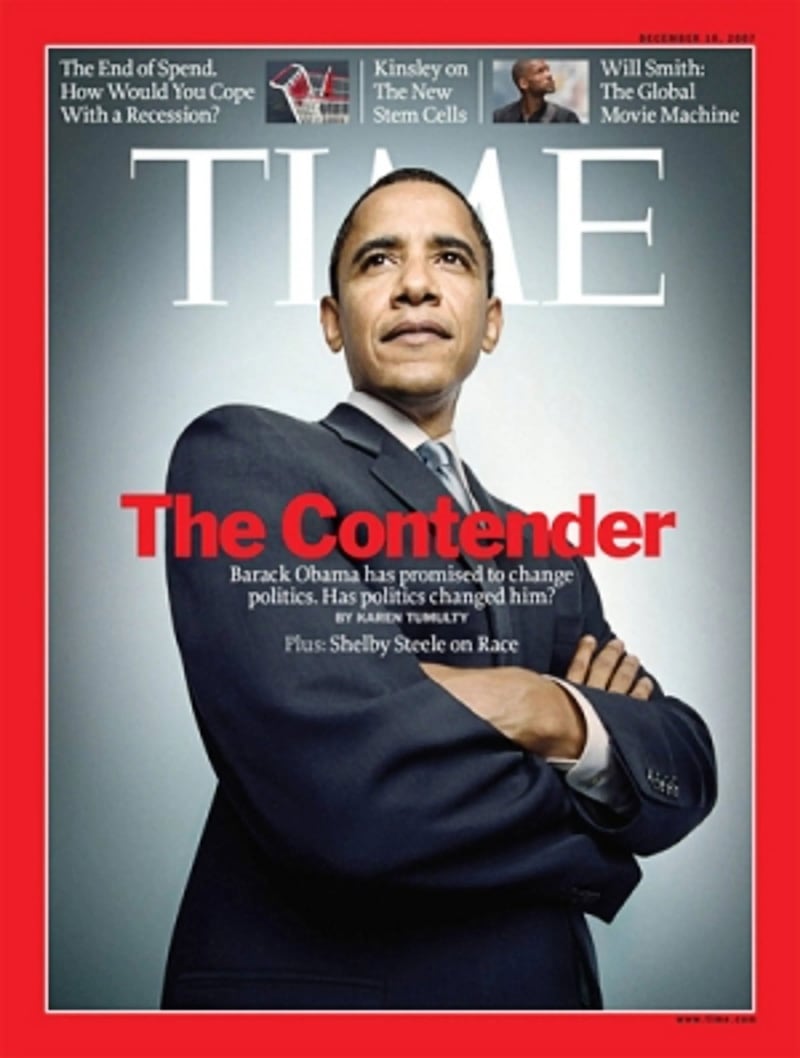
Time covers, meanwhile, have a long history of subversion. They have frequently blurred the line between veneration and critique: Nixon in chiaroscuro, Bush framed against smoke, Obama bathed in radiant light.
Trump’s new portrait both acknowledges and unsettles this legacy. It is unclear if Time bosses are aware of the macabre link, but for Newman, photography was never neutral.
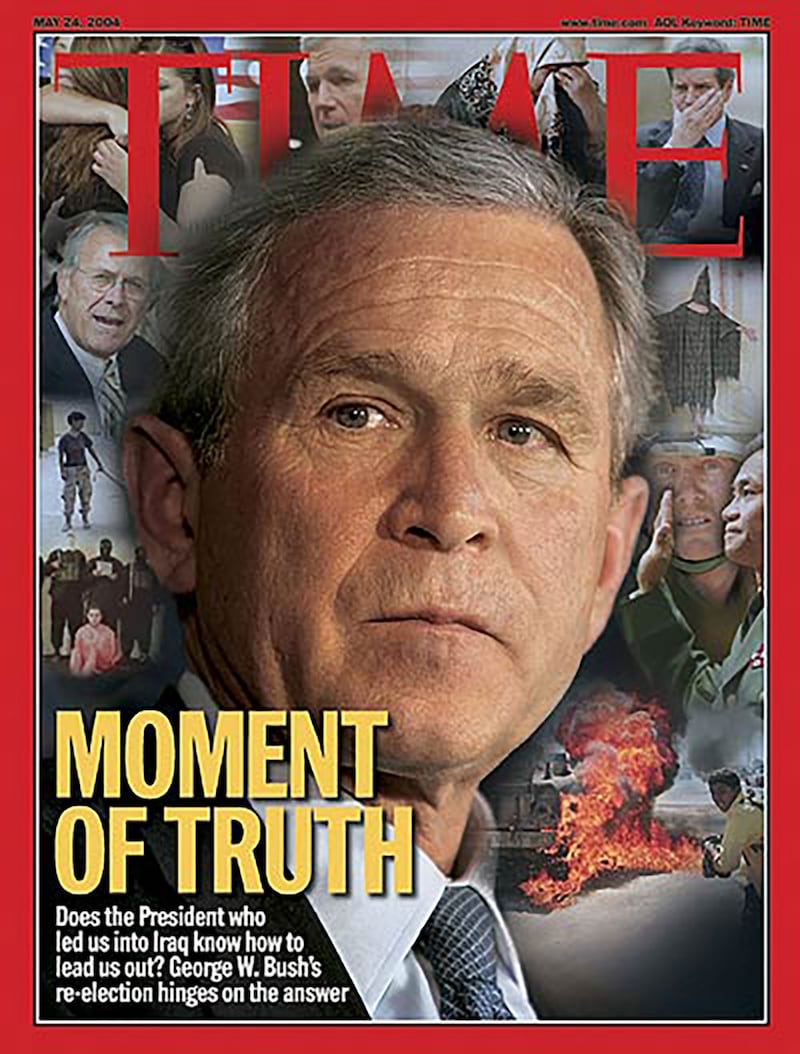
“The surroundings had to add to the composition and the understanding of the person,” he said in 2000. Newman died of a stroke six years later in Mount Sinai Hospital, just a 10 minute subway ride from the Chrysler Building.
Time and the White House have been contacted for comment.
The post Trump’s Newest Time Cover’s Nazi Inspiration Revealed appeared first on The Daily Beast.
